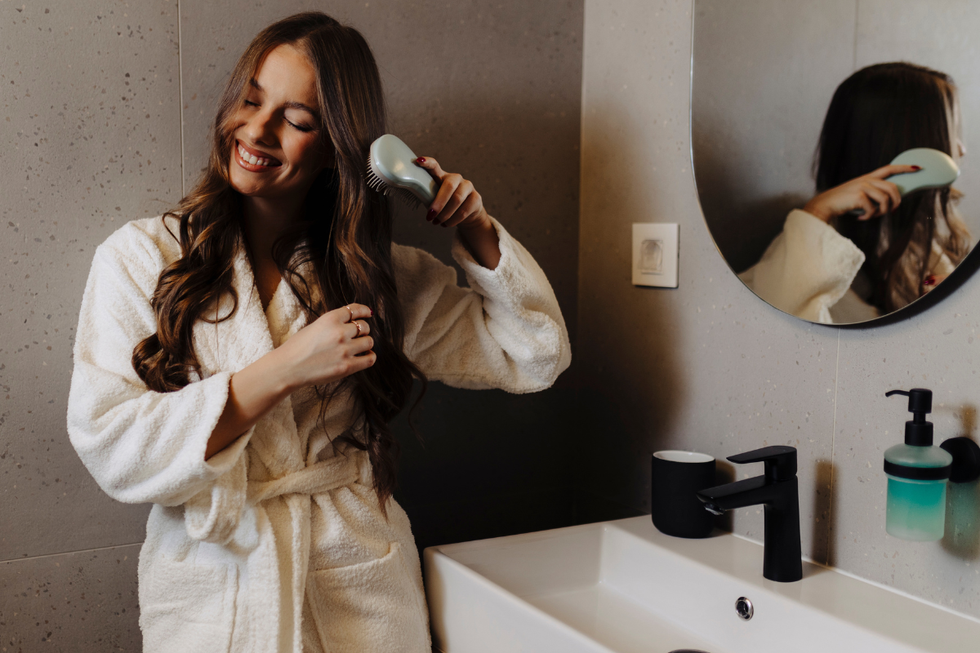Key to 'long, flowing' locks laid bare as experts laud simple upgrade as 'foundation for hair growth'
Say goodbye to dry, brittle or damaged locks with an easy switch-up, experts proclaim
Don't Miss
Most Read
Spending hundreds on high-end hair products might not be the secret key to sleek and smooth locks. Instead, experts have suggested that those looking to keep those pesky split ends at bay should turn their heads to bedding.
In fact, switching from cotton to silk pillowcases could be the real secret to healthier hair, according to experts. The smooth surface of silk helps prevent hair breakage, reduces tangling and preserves natural oils that are essential for hair health.
Unlike cotton, which can be rough and absorbent, silk pillowcases create less friction against hair strands as you sleep, protecting them from damage and helping to maintain moisture balance.
Hair specialists suggest that this simple bedtime upgrade could make a significant difference to hair quality, particularly for those afflicted with dry, brittle or damaged locks.

Hair specialists suggest that this simple bedtime upgrade could make a significant difference to hair quality
|GETTY
Brand manager at Mulberry Park Silks Zoe Doyle told GB News: "If you are using all the right products but sleeping on a rough pillowcase (even if it seems soft, it may not be), you are erasing all of your hard work and the money spent on hair treatment."
She explained that cotton and other similarly rough materials can "tug at your hair" overnight, causing "mechanical breakage and tension on already fragile strands".
Cotton pillowcases can be problematic because "under a microscope, even a soft cotton pillowcase looks sharp and rough.
Cotton is designed to be absorbent, which is why it makes a great towel but when it comes to drying it out strands, it also excels at that".
"Silk pillowcases help your scalp retain its natural oil, which is essential in maintaining scalp microbiome, and creating a strong foundation for hair growth," Zoe explained.
LATEST DEVELOPMENTS
The Harley Street Hair Clinic highlights several benefits of silk pillowcases, noting: "When you sleep, your hair gets tangled and knotty, especially if you have finer hair or move around a lot during the night. A silk pillowcase does not cause as much tangling compared to a cotton pillow."
The clinic also points out that "the softness of silk pillowcases prevents breakage, which makes it easier to grow long, flowing hair". And, with use, the medics said that split ends would be less common.
Another benefit of silk pillowcases is their hypoallergenic nature, meaning that it's one of the best materials to invest in, according to the Harley Street Hair Clinic.
The Wimpole Clinic backed these advantages, reiterating: "Silk pillowcases can help reduce hair loss. Sleeping on such a smooth surface will protect already dry and brittle hair from suffering any more friction damage."

A little luxury could be crucial to protecting your locks
|GETTY
They explain that "rougher fabrics rubbing against it during involuntary nocturnal movement can cause sensitive strands to split and break, which is why you may find loose hairs on your pillow in the morning", adding that silk pillow cases "gently caress" your hair instead of "tearing it off".
Despite the many benefits silk pillowcases offer for hair health, experts caution they are not a solution for all hair loss issues.
The Harley Street Hair Clinic emphasises that "silk pillowcases and hair work very well together, but they cannot prevent hair loss caused by androgenetic alopecia, telogen effluvium, or other types of alopecia - they can only prevent breakage".
For those experiencing significant hair loss, the clinic advised: "If you have experienced hair loss, you should find a better hair restoration option, such as a hair loss medication or a hair transplant.
"Your first step should be to determine the cause of the hair loss before getting started on a restoration journey."











